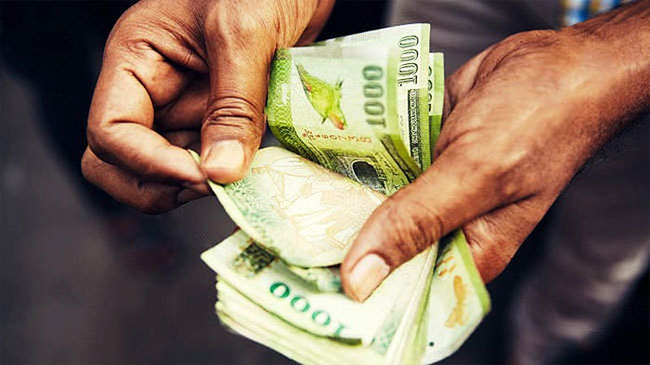By: Staff Writer
July 26, Colombo (LNW): Sri Lanka has seen over one-fifth of its households pushed into debt due to the man-made economic crisis, according to a state survey report.
Approximately 22% of household units are currently in debt, as revealed by the Department of Census and Statistics. Additionally, the average monthly income for 60.5% of the total household units has decreased.
The 2023 report from the ‘Household Survey on the Impact of the Economic Crisis’ outlines that 54.9% of people aged 3 to 21 have been affected by the crisis, with 93.5% adopting strategies to mitigate its impact.
Furthermore, 14.2% of people over the age of 15 have lost their jobs since March 2022, with job losses higher among males compared to females.
During economic crises, household indebtedness rises due to income reductions, job losses, and financial uncertainties. This often forces households to borrow more to cover essential expenses, leading to increased debt burdens.
Repayment challenges emerge, resulting in late payments, defaults, or reliance on credit. High household debt levels cause stress and financial strain, affecting mental well-being and potentially leading to foreclosures or bankruptcy.
Managing this situation involves policies aimed at debt relief, financial education, and economic stimulus measures to support households and economic recovery.
The survey findings indicate that currently, 54.9% of households in Sri Lanka are indebted, highlighting significant financial obligations or outstanding debts.
This indebtedness impacts household finances, budgeting, and financial stability, especially during economic challenges.
The survey also provides a percentage distribution of indebted households based on different lending sources.
The highest proportion of debt arises from mortgage matters (31.0%), followed by banks (21.9%) and money lenders (9.7%). Notably, 22.3% of indebtedness arises from loans taken to meet daily food needs, indicating severe financial constraints in fulfilling basic necessities.
Additionally, 17.0% of indebted households acquired loans for constructing or repairing residences. Understanding these factors is crucial for policymakers and financial institutions to address these challenges and create interventions to ease economic burdens.
In 2023, the average monthly expenditure of 91% of the total household units in Sri Lanka increased, and 7% of the population changed their health treatment system, according to the Department of Census and Statistics.
The economic crisis has influenced household spending patterns, leading to variations in expenditure categorized as increases, decreases, or no changes. The primary reason reported by households for reducing their average monthly expenditure, accounting for 77% of responses, was to align expenses with the decrease in income. Households adjusted their spending habits to match the reduction in overall income.

